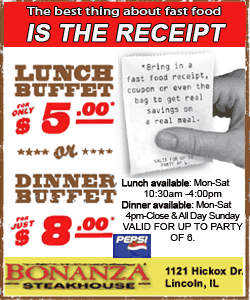|
 The Internal Revenue Service started making the direct deposits on Monday with the goal of completing 800,000 payments each day over the first three days of this week. No deposits will be made Thursday while the IRS prepares a big batch of 5 million direct deposits scheduled on Friday. The Internal Revenue Service started making the direct deposits on Monday with the goal of completing 800,000 payments each day over the first three days of this week. No deposits will be made Thursday while the IRS prepares a big batch of 5 million direct deposits scheduled on Friday.
The IRS had expected to begin the program in May but was able to start a few days earlier by utilizing a computer system that can process payments on a daily basis. The government's paper checks will start going out on May 9, a week earlier than previously announced.
The rebates, which are expected to reach 130 million households, range up to $600 for an individual and $1,200 for married couples plus $300 for eligible children younger than 17.

The rebates were the centerpiece of the government's $168 billion economic stimulus package enacted in February and are designed to bolster consumer spending and lift the economy out of the doldrums.
The first wave of payments are going to people who opted for direct deposit on their 2007 income tax returns.
Both the direct deposit payments and the paper checks are being processed by the last two digits of a taxpayers' Social Security number.
For people receiving direct deposits, those with a Social Security number ending in 00 to 20 will have their economic stimulus payment deposited to their bank account by this Friday.

Those with Social Security numbers ending in 21 to 75 will get their direct deposits by May 9 and those with Social Security numbers ending in 76 to 99 will get their deposits by May 16.
For those receiving paper checks, the last paper checks, covering people with Social Security final digits from 88 to 99 will be in the mail by July 11 under the current schedule. The IRS estimates that about two-thirds of the payments will be paper checks and one-third will be direct deposits.
The payment schedule covers people who filed early enough to have their tax returns processed by April 15. The IRS is continuing to urge people who did not file returns because they did not owe taxes to file in order to receive an economic stimulus check.
People who do not have to file a tax return but have at least $3,000 in qualifying income may be eligible for an economic stimulus payment of $300 for an individual and $600 for a couple plus $300 per qualifying child.
[to top of second column] |
 "We know there are many people who are eligible for an economic stimulus payment who have not filed a tax return," IRS Commissioner Doug Shulman said Monday. "If you think you may be eligible, even if you don't normally file a tax return, please check it out."
People who have not yet filed returns have until Oct. 15 of this year to do so in order to receive a stimulus payment. The simple Form 1040A along with directions on what lines must be completed for the stimulus payments can obtained by going to the agency's official Web site, http://www.IRS.gov.
Many economists believe the country has fallen into a recession, but President Bush last week disputed that view, saying he believed it was a period of slower growth which would be helped by the stimulus checks.

Democrats, however, pointing to rising layoffs as the economy weakens, contend that more needs to be done. They are pushing for a second stimulus package that would include extending unemployment benefits for another 13 weeks, boosting food stamp benefits and adding billions of dollars for construction projects such as roads and bridges.
Presidential press secretary Dana Perino told reporters Monday that the administration was projecting that the first stimulus measure will create around 500,000 jobs this year and should be given time to work before a second package is considered.
[Associated
Press; By MARTIN CRUTSINGER]
Associated Press writer Ben Feller contributed to this report.
Copyright 2008 The Associated
Press. All rights reserved. This material may not be published,
broadcast, rewritten or redistributed.
 |